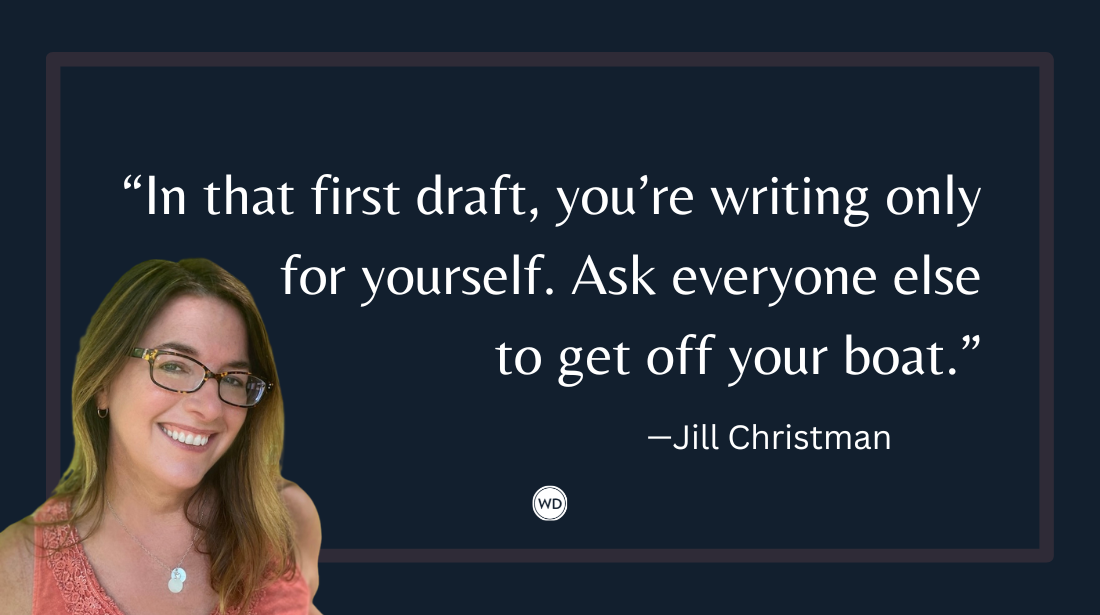Sarah LaBrie: There’s a Lot of Scary Information About Publishing on the Internet
In this interview, author Sarah LaBrie discusses having a strong “want” and how that motivation helped drive her toward her debut memoir, No One Gets to Fall Apart.
Sarah LaBrie is a writer from Houston, Texas. Her libretti have been performed at Walt Disney Concert Hall and her fiction appears in Guernica, The Literary Review, and the Los Angeles Review of Books. She has held residencies at Yaddo, UCross and the Virginia Center for the Creative Arts. She lives in Los Angeles where she has written for television shows including "Minx" (Starz), "Blindspotting" (Starz), "Made for Love" (MAX), and "Love, Victor" (Hulu). She holds an MFA from NYU where she was a Writers in the Schools fellow. Follow her on Instagram.
In this interview, Sarah discusses having a strong “want” and how that motivation helped drive her toward her debut memoir, No One Gets to Fall Apart, the scary publishing information online, and more.
Name: Sarah LaBrie
Literary agent: Claudia Ballard
Book title: No One Gets to Fall Apart
Publisher: HarperCollins
Release date: October 22, 2024
Genre/category: Memoir
Elevator pitch: No One Gets to Fall Apart is a memoir about the year after my mother’s psychotic break and my attempts to find out what caused it. In it, I trace the legacy of mental illness in our family back to our ancestors, who were enslaved.
What prompted you to write this book?
My mother had just been diagnosed with schizophrenia in Houston and was refusing treatment and medication. My grandmother and aunt were caring for her, and none of us knew what was going to happen. My mother treated me badly when I was growing up, due to what I suspect was undiagnosed borderline personality disorder, so we hadn’t been speaking for years. I was living in Los Angeles trying to become a writer. Around the time of my mom’s breakdown, one of my closest friends abruptly ended our friendship. The novel I’d dedicated my life to writing, The Anatomy Book, hit a wall. I was incredibly depressed. I felt like if I didn’t write everything down that was happening to me, I would die. So, I did that.
How long did it take to go from idea to publication? And did the idea change during the process?
I started writing it in 2017. I signed with my current agent, Claudia Ballard, in 2019. We did three full revisions with an eye toward giving the book a very clear structure. It went out on submission in 2021. It sold pretty quickly, and my editor, Jenny Xu, had me rewrite it again, this time starting with a very detailed outline. That made the book immeasurably better. Jenny Xu is a certified genius and I’m so happy we found each other. She left for Simon and Schuster and the final edits came from Adenike Olenrawaju, who got me to the finish line with some life-changing structural advice.
That first draft I wrote in 2017 was, I see now, a bunch of vignettes and images and sentences in search of a story. Now, it’s a funny, emotional book with a narrative arc. The ideas stayed the same, but the execution changed
Were there any surprises or learning moments in the publishing process for this title?
There’s a lot of scary information about publishing on the internet—people say readers aren’t reading anymore, publishers are overwhelmed, editors are too busy—but I had a really great experience from when I signed with my agent to now. That was a good reminder to get offline sometimes.
Were there any surprises in the writing process for this book?
It was so much harder than I expected it to be but, in a way, so much easier. Once the book found its shape and its form, it was like there was a container I just had to figure out how to fill correctly. Every day, as long as I woke up and showed up at my desk, the path forward for the book was ready and waiting. I definitely wrote and rewrote every sentence, but once I was on the right track, I felt it. I knew if I just kept working, I would get there. That was a very surprising and cool kind of magic. The exact opposite of how I felt about the novel.
What do you hope readers will get out of your book?
What’s interesting about having a loved one with an untreated mental illness is that the things they do and say often don’t make any sense. So, when you try to tell people what’s happening, what you say comes out incoherent. It took a lot of work to clarify these stories, both for myself and on the page. That work will be worthwhile if others recognize themselves in it and seek out the resources that helped us.
If you could share one piece of advice with other writers, what would it be?
It helps to have a really, really strong “want.” I really wanted to finish and sell my first novel, The Anatomy Book, and I sacrificed a lot for that dream. It didn’t come true, but that blind desire—and the discipline I developed because of it—was so strong it made a lot of other wonderful things happen. Have a specific goal and put everything towards it. I think the universe tends to meet you halfway if you do that.








